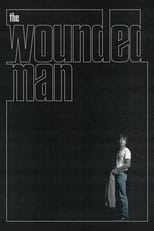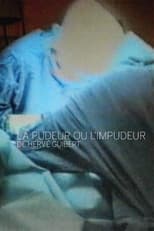Hervé Guibert
¿Quién es Hervé Guibert?
Guibert was born in Saint-Cloud, Hauts-de-Seine, to a middle-class family and spent his early years in Paris, moving to La Rochelle from 1970 to 1973.
After working as a filmmaker and actor, he turned to photography and journalism. In 1978, he successfully applied for a job at France's evening paper Le Monde and published his second book, Les Aventures singulières (published by Éditions de Minuit). In 1984, Guibert shared a César Award for best screenplay with Patrice Chéreau for L'homme blessé. Guibert had met Chéreau in the 1970s during his theatrical years. He won a scholarship between 1987 and 1989 at Villa Medicis in Rome with his friend, writer Mathieu Lindon. He described these years in L'Incognito, published in 1989.
Guibert's writing style was inspired by the French writer Jean Genet and, later, by the work of Austrian writer Thomas Bernhard. Three of his lovers occupied an important place in his life and work: Thierry Jouno, director of the International Visual Theatre for the deaf in Paris, whom he met in 1976; Michel Foucault, whom he met in 1977; and Vincent Marmousez, a teenager of fifteen who inspired his novel Fou de Vincent (published in English as Crazy for Vincent).
For a time in the 1980s Guibert was a reader at the institute for young blind in Paris, Institut National des Jeunes Aveugles, which led to his novel Des aveugles (published in English as Blindsight).
In January 1988 Guibert was diagnosed with AIDS. From then on, he worked at recording what was left of his life. In June the following year, he married Christine, the partner of Thierry Jouno, so that his royalty income would eventually pass to her and her two children. In 1990, Guibert publicly revealed his HIV status in his roman à clef À l'ami qui ne m'a pas sauvé la vie (published in English as To the Friend Who Did Not Save My Life). Nina Bouraoui in The Guardian described the book thus: "In this book, he tells the story of his illness, AIDS, in the late 1980s. He tells of how life with the virus became an existential adventure, how it affected a generation, how it stole his friends and lovers, and how writing was for him a bulwark against death and destruction. It's the story of an era, a turning point – when AIDS transformed our relationship with desire and sexuality forever."
Upon publication, Guibert immediately found himself the focus of media attention, featured in newspapers and appearing on several television talk shows. ...
Source: Article "Hervé Guibert" from Wikipedia in English, licensed under CC-BY-SA 3.0.
Trabajos destacados
Géneros más habituales en las películas de Hervé Guibert
Géneros más habituales en las series de Hervé Guibert
Compañeros de trabajo recientes de Hervé Guibert
Las imágenes y retratos de actores o actrices mostrados en este sitio web son obtenidos de la base de datos de The Movie Database (TMDB). En el caso de que alguna imagen o fotografía sea incorrecta, ofensiva o infrinja derechos de imagen, puede ser editada o eliminada de TMDB, lo que resultará en su eliminación correspondiente en este sitio. En última instancia, los usuarios también pueden utilizar el formulario de contacto ubicado al pie de la página para solicitar la corrección o eliminación de cualquier contenido.
The images and portraits of actors or actresses displayed on this website are sourced from The Movie Database (TMDB). In the event that any image or photograph is incorrect, offensive, or violates image rights, it can be edited or removed from TMDB, subsequently ceasing its display on this site. As a final recourse, users may also utilize the contact form located at the bottom of the page to request the correction or removal of any content.

